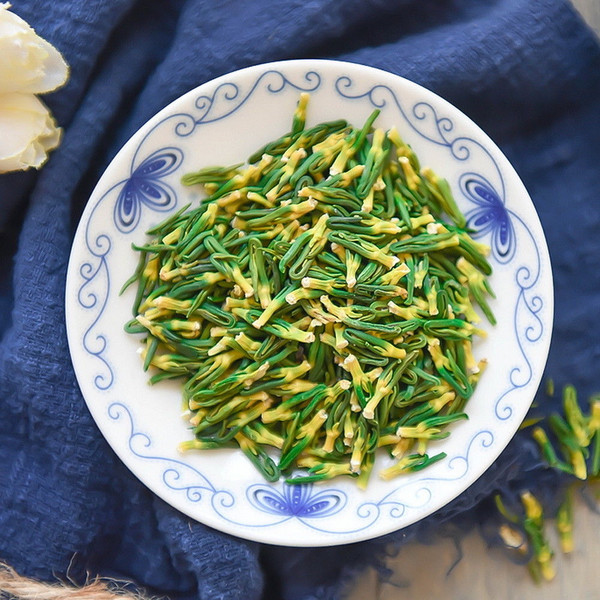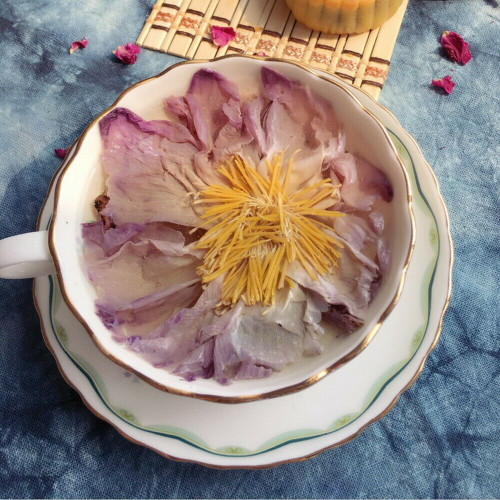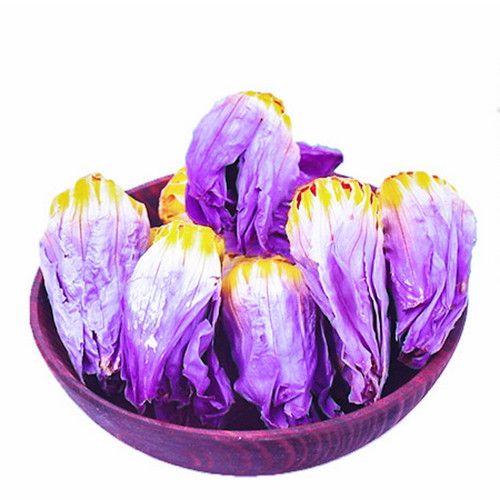Product Overview
Type: Herb
Packaging: Bag
Origin: China
Description: Lotus plumule, also known as Lian Zi Xin or Plumula Nelumbinis, is a Chinese herb with lots of health benefits. It is edible but not suitable for direct consumption because it is so bitter. But this unwelcome flavor would be slightly diluted if soaked with boiled water. So it is often used as a routine drinking tea for the main purpose of decreasing internal heat. Besides of making tea, this herb is also a good medicine, which is an essential ingredient in Chuan Xin Lian Pian (Andrographis Paniculata Tablet), one common medicine in most Chinese home medicine cabinet checklist for a variety of ailments like cold and upper respiratory infections.
What is lotus plumule? It refers to the green spire and radicle in the middle of the mature seeds of Nelumbo nucifera Gaertn., which is a plant in the family nymphaeaceae. And other names of it include Lian Xin, Nelumbo nucifera plumule, Nelumbinis Plumula, Plumula Nelumbinis Nuciferae, and so on. Medicinally the processing is quite simple – take it out and dry it in the sun. Lotus is such a treasure that every part of it, for instance lotus leaves, lotus root, lotus flower, and lotus seed, has really high medicinal and nutritional value.
Medicinally it looks like thin rod, 1 to 1.4cm long, and 0.2cm in diameter. Green spire, one long and one short, rolls into arrow, with downwards reflexed apex and a tiny embryo between two tiny leaves. Radicle is cylindrical, about 3mm, yellow and white. It is brittle, easily broken, and with several holes on cross section. And it has slight odor and bitter taste.
Main chemical compositions are liensinine, isoliensinine, neferine, nuciferine, pronuciferine, lorusine, methylcorypalline, higenamine, armepavine, nelumbine, galuteolin, hyperin, rutin, palmitic acid, unsaturated keto acid, chlorophyll, etc.
Lotus plumule health benefits
This green germ within the mature lotus seeds are traditionally used as a Chinese folklore remedy to clear heart fire and prevent seminal emission. And it one of the most desirable herbs for those insomniacs due to heart-kidney imbalance and fire excess from yin deficiency. From the point of view of clinical application, it is ideal for mild insomnia populations and appropriate diazepam can be added if it fails. In comparison, diazepam may do more harm to the body in long-term use. In addition, patients with insomnia should cultivate good habits, such as a walk after dinner, more exercise, etc., which are very helpful for sound sleep.
Traditional Chinese medicine considers that this herb is with bitter flavor and cold properties. And it goes to heart, lung, and kidney meridians. Primary functions are clearing heart fire, extinguishing liver fire, stopping bleeding, and controlling nocturnal emission. Basic lotus plumule uses and indications include coma and delirium, dysphoria, insomnia, dizziness, spitting blood, and nocturnal emission.
How to use: Recommended dosage is from 1.5 to 3 grams in decoction or powder.












